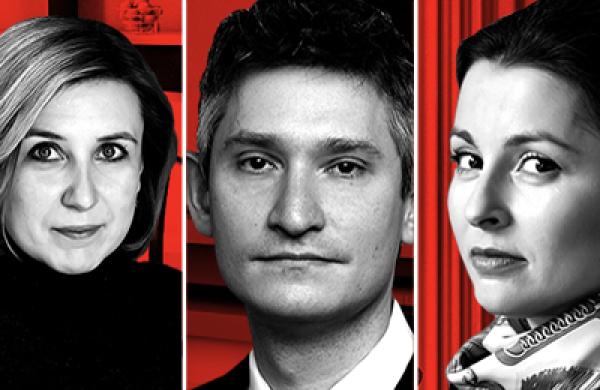For one thing, he didn't used to have to put up with the likes of Vadim Kleiner. The head of research for activist Russian money manager Hermitage Capital Management, Kleiner sits on Sberbank's board and sees his mission as being, well, forthright in his criticisms. "It's the job of independent directors to be outspoken," declares the 33-year-old Russian. "What's the point of having them, otherwise?"
What's the point, indeed, Kazmin must wonder. For months now, Kleiner says, he has been asserting at board meetings that the country's biggest bank is using its unique state deposit guarantee to lend far too generously to a handful of superrich oligarchs and to maintain its bloated cost structure.
Sberbank, he says, controls nearly 70 percent of all Russian bank savings and pays below-market interest on the money. And this enormous, inexpensive deposit base, Kleiner alleges, allows the bank to make fat loans at discounted rates to the large companies controlled by the country's wealthiest businessmen. The result? Just ten corporate borrowers make up 32 percent of Sberbank's loan book -- a huge overconcentration, in Kleiner's opinion. What's more, he says, the relatively cheap deposits allow the bank to pay little attention to costs.
Frustrated by other board members' reluctance to challenge the status quo, Kleiner says he aired his grievances at a December global banking conference at the Adam Smith Institute in London. (One quote from his presentation: "It is completely inequitable for Sberbank to be the conduit for the Russian population to subsidize Russian oligarchs.") At the very next Sberbank board meeting, Kazmin pushed through a special resolution to bar Kleiner from criticizing the bank in public.
Sberbank has responded with a 43-page rebuttal to Kleiner. Andrej Trusov, the bank's director of international relations, says Kleiner did not put forth his claims at any supervisory board meetings before his public statements in London. Sberbank, says Trusov, has never sought to prevent Kleiner from exercising his rights as a board member. He concedes that the board censured Kleiner but notes that Russian company law states that a director like Kleiner "bears responsibility for his actions causing damage to the company."
Kleiner takes a different view of his responsibilities. "Sberbank is still like an old-style Soviet-era firm," he tells Institutional Investor. "It just isn't used to any form of critique, especially not from an insider." Kazmin can expect to hear more from Kleiner at this month's board session, in preparation for what promises to be an interesting annual general meeting.





